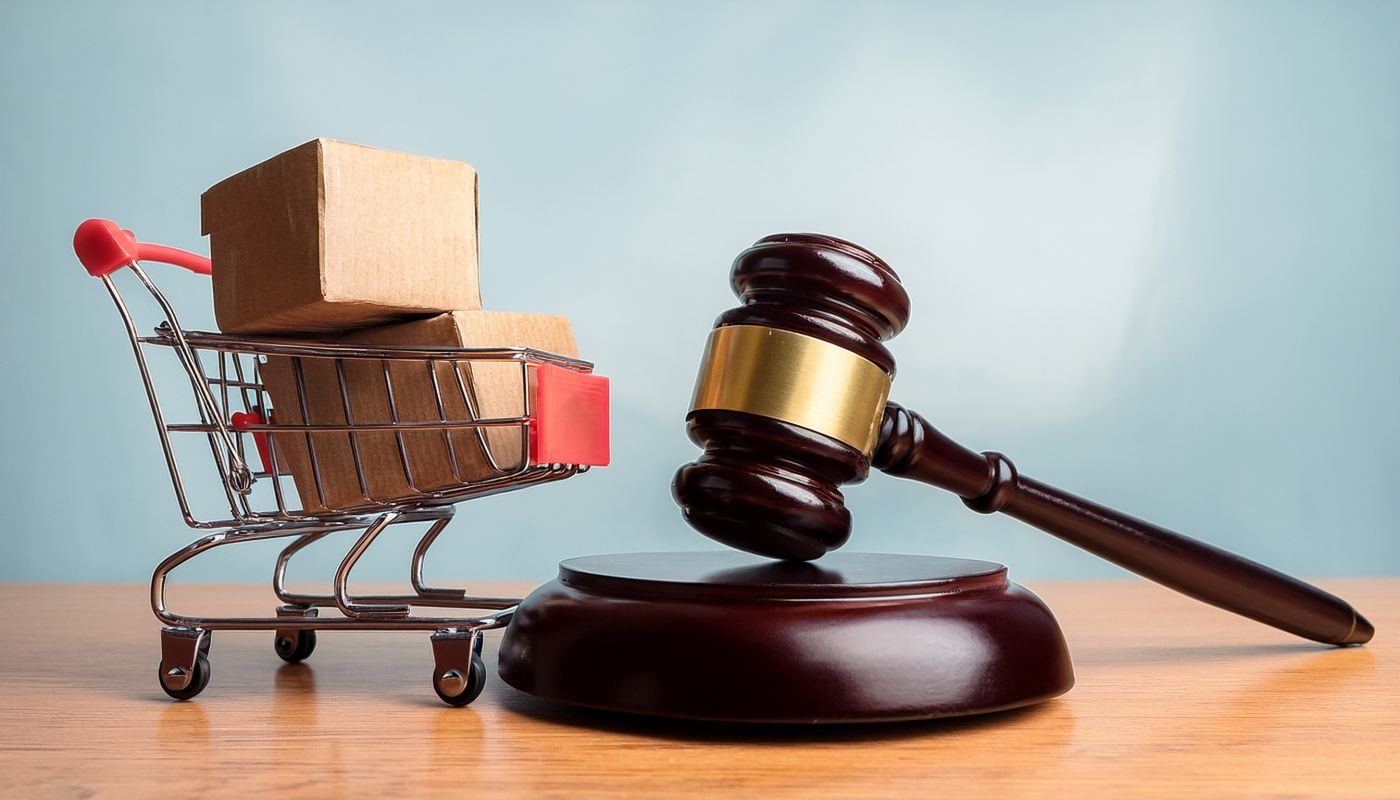Data breaches have become a pressing concern in the digital age, affecting millions of individuals and businesses each year.
When sensitive information such as financial data, medical records, or personal identification details is exposed, victims may face financial loss, identity theft, and emotional distress, while companies risk legal liability, reputational damage, and regulatory penalties.
This growing threat underscores the importance of strong data breach notification laws, which protect consumers, promote transparency, and hold organizations accountable.
At Scott Hirsch Law Group, PLLC, our Coconut Creek, FL data breach attorney understands the impact of these events and the vital role notification laws play in protecting consumer rights. Located in Florida and serving clients nationwide, we help individuals and businesses pursue data breach claims, guiding them through potential remedies after a breach.
If your personal information was exposed, contact our firm today to discuss your options.
The Foundation of Data Breach Notification Laws
Data breach notification laws exist to give individuals timely notice when their personal information is compromised. These laws require organizations to inform affected individuals, enabling them to take protective measures like changing passwords, monitoring accounts, or freezing credit reports.
The foundation of these laws lies in transparency and accountability. They prevent businesses from concealing breaches and encourage the adoption of stronger cybersecurity practices.
The Evolution of Privacy Protection
California passed the first data breach notification law in 2003, and now all states have similar regulations, though timelines and requirements vary. Over time, these laws have added reporting standards, penalties, and clear definitions of personal data.
Federal and international efforts, like the European GDPR, highlight the broader movement toward protecting consumer privacy and show the critical role of notification laws.
Why Data Breach Notification Matters
Data breach notification laws are essential for restoring trust between consumers and organizations. They empower individuals to protect themselves from further harm and give regulators tools to hold businesses accountable. Consulting an experienced civil litigation lawyer can help victims understand their rights and pursue data breach claims effectively.
When companies must notify victims and authorities, careless or unethical practices are less likely. Transparency strengthens consumer confidence, reassuring the public that a company is acting responsibly.
Without notification laws, victims might never learn their information was exposed. Timely notice allows individuals to act quickly by changing passwords, monitoring accounts, freezing credit lines, and pursuing data breach claims. Taking swift action not only limits financial or identity-related harm but also reinforces accountability for organizations handling personal data.
How Companies Respond to Data Breaches
Upon discovering a breach, companies must act swiftly. Most states expect businesses to identify and contain the breach, assess the impact, notify affected individuals, report the incident to regulators, and review security systems to prevent recurrence. These steps reflect both legal and ethical responsibilities under data breach notification laws.
Many companies face challenges in compliance, especially when breaches involve third-party vendors, cloud services, or international entities. Noncompliance can result in penalties, lawsuits, and reputational harm, making a clear breach response plan critical.
The Legal Significance of Data Breach Claims
Victims of a data breach often have the right to pursue data breach claims against the responsible party. These claims can help recover financial losses, compensate for emotional distress, and prompt companies to adopt stronger security measures in the future.
Common Grounds for Data Breach Claims
Victims may bring claims based on several legal theories, including negligence, breach of contract, consumer protection violations, or invasion of privacy.
Negligence: When a company fails to take reasonable steps to protect personal information.
Breach of contract: When the company violates its privacy policy or user agreement.
Consumer protection violations: When state or federal privacy laws are broken.
Invasion of privacy: When sensitive personal data is wrongfully exposed or used.
Each case depends on the facts, including how the breach occurred, whether the company acted responsibly, and what damages resulted.
Potential Remedies for Victims
Successful data breach claims can provide victims with meaningful remedies that help address both immediate and long-term consequences of a breach. Potential outcomes may include:
Monetary compensation: Reimbursement for direct financial losses and related expenses.
Injunctive relief: Court orders requiring companies to improve cybersecurity practices.
Credit monitoring services: Free or extended protection for affected individuals.
Holding companies accountable through these claims not only helps victims recover but also pressures businesses to handle data more responsibly.
Federal and State Regulations on Data Breach Notification
The United States doesn’t yet have a single federal law governing data breach notification, but all 50 states and several territories have enacted their own laws. These state-level regulations share common elements but vary in scope and penalties.
Key State Law Requirements
While details differ, most state laws include requirements designed to protect consumers and hold companies accountable for data breaches. These typically cover:
Timely notification: Companies must alert affected individuals within a specific timeframe, often between 30 and 60 days.
Content of notification: Notices must describe what happened, what data was compromised, and what steps are being taken.
Reporting to authorities: Some states require companies to inform the attorney general or other agencies.
Penalties for failure to notify: Companies that delay or withhold information can face fines or legal action.
Florida’s Information Protection Act (FIPA), for example, mandates that organizations notify individuals within 30 days of discovering a breach involving personal information. This law also requires reporting to the Florida Attorney General if the breach affects more than 500 residents.
Federal Efforts Toward Uniformity
While Congress has proposed several federal bills, no single law has yet unified state standards. However, federal agencies such as the Federal Trade Commission (FTC) and the Department of Health and Human Services (HHS) enforce breach-related rules in specific sectors—like healthcare under HIPAA and finance under the Gramm-Leach-Bliley Act.
Uniform national standards could simplify compliance and strengthen consumer protections across state lines.
How Data Breach Notification Laws Impact Businesses
Strong notification laws don’t just protect consumers—they also benefit businesses. While compliance requires time and resources, it builds long-term trust and resilience.
Building Consumer Confidence
Transparency following a breach shows customers that a company values honesty and accountability. Businesses that comply with data breach notification laws are more likely to retain loyal customers, even after an incident. This trust can become a competitive advantage in industries where reputation is everything.
Encouraging Stronger Cybersecurity Practices
Knowing they’ll have to disclose any breaches, companies are increasingly motivated to strengthen their cybersecurity measures and reduce the likelihood of costly incidents. Preventive steps often include:
Regular security audits to detect vulnerabilities before they’re exploited.
Employee training on phishing, password management, and data handling.
Encryption and access control systems to protect sensitive data.
Incident response planning to minimize damage and maintain compliance.
By aligning compliance efforts with cybersecurity improvements, businesses can protect both their customers and their reputations, while also demonstrating a commitment to responsible data management that can help mitigate legal exposure and maintain consumer trust over time.
The Global Perspective on Data Breach Laws
The rise of international data privacy regulations shows that data protection is no longer a regional issue. Companies that operate globally must comply with a patchwork of laws, such as the GDPR in Europe and similar systems in Canada and Australia.
These regulations often go beyond U.S. standards, requiring explicit consent for data collection and strict timelines for breach reporting. For U.S. businesses that handle international customer data, compliance with these global laws is crucial to avoiding costly fines and reputational damage.
The increasing alignment between international and U.S. policies also suggests that stricter national laws could soon follow, strengthening consumer protections across the board.
Preventing Data Breaches Before They Happen
While notification laws deal with what happens after a breach, prevention remains the best defense. Companies that prioritize proactive measures reduce both their legal risk and potential harm to consumers.
Steps Businesses Can Take
To reduce the risk of data breaches and strengthen overall security, businesses can take proactive measures that address both technological vulnerabilities and employee practices. Some preventive strategies include:
Implementing multi-factor authentication: Reduces the risk of unauthorized access.
Encrypting sensitive data: Protects information even if it’s stolen.
Regularly updating systems: Addresses security vulnerabilities before hackers exploit them.
Creating incident response plans: Helps employees know how to react quickly and effectively.
Working with cybersecurity professionals: Makes sure ongoing monitoring and compliance.
By adopting these strategies, businesses can demonstrate their commitment to privacy and reduce their likelihood of facing data breach claims.
Protecting Your Rights After a Data Breach
When individuals receive notice that their personal data has been compromised, they often feel uncertain about what to do next. However, taking quick action can limit potential damage and preserve legal options.
Steps Victims Should Take
When personal information is compromised, taking immediate and deliberate action can help minimize financial and identity-related damage. If you’re affected by a data breach, consider the following actions:
Confirm the source: Verify the legitimacy of the notification to avoid scams.
Monitor your accounts: Watch for unauthorized transactions or suspicious activity.
Change passwords: Use unique, strong passwords for each account.
Request credit reports: Check for unfamiliar accounts or inquiries.
Consult a lawyer: Discuss whether you may have grounds for data breach claims.
Legal action may be appropriate when the organization responsible for the breach acted negligently or failed to provide timely notice, and taking these steps promptly can also strengthen your position if pursuing claims, while helping you regain control over your personal information.
Contact Us Today
At Scott Hirsch Law Group, PLLC, in Coconut Creek, Florida, we help individuals and businesses pursue data breach claims and understand their rights under state and federal laws. Our firm is committed to helping victims recover and holding negligent organizations accountable. We serve clients throughout Florida and across the United States. If your personal information has been compromised, contact us today to discuss your legal options and protect your future.



